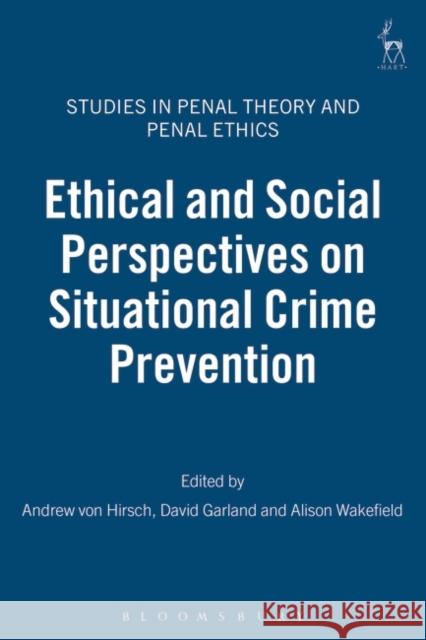Ethical and Social Perspectives on Situational Crime Prevention » książka
Ethical and Social Perspectives on Situational Crime Prevention
ISBN-13: 9781841135533 / Angielski / Miękka / 2004 / 240 str.
This book addresses the ethics of situational crime prevention. Are situational crime prevention strategies likely to constrain unduly people's freedom of movement? Do such strategies involve an intrusive scrutiny of people's everyday activities? Can ethical principles be developed that would help distinguish acceptable from unacceptable forms of intervention? It also examines the place of situational crime prevention within criminology. To what extent does its emergence represent a basic shift in thinking about the nature of crime, and about prospects and strategies for dealing with it? To what extent is crime being treated as a -normal- risk to be managed? How far does situational crime prevention place responsibility for crime prevention beyond the state apparatus to the organizations and institutions of civil society? What are the social and political implications of doing so? These questions are addressed by twelve distinguished criminologists in the papers which make up the book. Together they advance our understanding of the ethical and societal questions underlying crime prevention.











